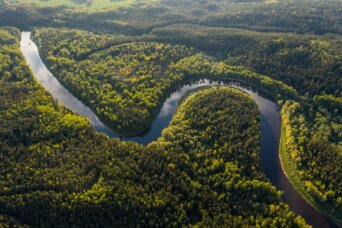- About
- Topics
- Picks
- Audio
- Story
- In-Depth
- Opinion
- News
- Donate
- Signup for our newsletterOur Editors' Best Picks.Send
Read, Debate: Engage.
| topic: | Sustainable Development |
|---|---|
| located: | Brazil |
| editor: | Ellen Nemitz |
Brazil holds about 12 percent of all available freshwater on the planet, although this amount has been shrinking in the recent past due to several factors, such as deforestation and the building of dams. Nonetheless, the availability of good quality water has never been fair: in the semi-arid northeastern region, for instance, droughts have been part of day-to-day life for centuries, leading to polemical projects of changing the course of a river to try to bring water to dry places. Meanwhile, other regions where water usually flows freely have been increasingly hit by changes in rainfall patterns.
Notwithstanding the urgent need to take better care of a scarce resource, Brazil has not been leading the way towards the adequate use of water. A study led by Instituto Trata Brasil, a civil society organisation acting for the advance in basic sanitation and the protection of the country's water resources, shows that the equivalent of almost 8,000 Olympic swimming pools of potable water is lost during the distribution process, mostly due to leaks, representing 40 percent of all treated water.
This amount of water is enough to satisfy 66 million people in one year, says the institution. Meanwhile, millions of Brazilians still lack access to clean water and sanitation. "This volume would be, therefore, more than enough to bring water to the almost 35 million Brazilians who until today do not have access even to wash their hands," highlights the document. The worst fact is that the problem has not been properly addressed: from 2016 to 2020, the waste index worsened by nearly 5 percent.
The losses put Brazil in a middle position compared to other nations in South and Central America. Uruguay is the country with the worst rates, letting 51 percent of its water go to waste even before being used. Costa Rica, Colombia and Ecuador also have bad positions. The two countries with the best index are Chile and Bolivia, with 31 and 27 percent, respectively. However, when it comes to wasting a limited resource, not even these are good results.
Within the UN theme for this World Water Day - Be the change - we may find some interesting initiatives to raise awareness about the value of water and the necessity of preserving it. One of those is the newly inaugurated Planet Water Museum, in the southern Brazilian city of Curitiba. Relying on international partnerships with institutions such as Unesco, Nature Conservancy and Voice of the Ocean, the museum mixes creative and sensorial experiences to lead children and adults through the hydric world in nine spaces, dedicated to the relations of this asset to consumption, energy and health, among others.
Conserving good quality water is more important now than ever since climate change has altered the patterns of rainfall and water distribution throughout the globe in a not completely understood way. However, as the Planet Water Museum shows, water is used everywhere - from day-to-day activities to industry and agriculture, for instance. While individual action counts, this must be a collective effort between citizens, companies and governments.
Image by Ivars Utināns
